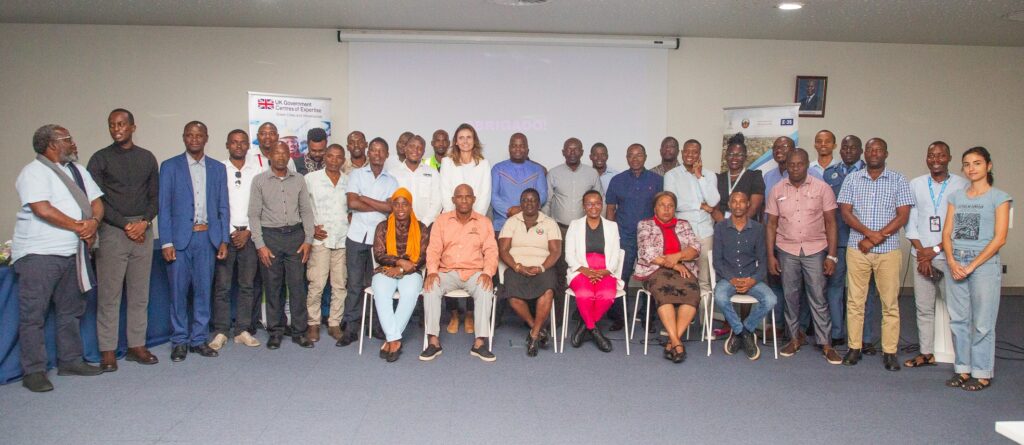- A validation and consultation workshop was held to refine and approve key urban development indicators for the Pemba Municipal Urban Observatory.
- Stakeholders from government, civil society, private sector and academia contributed, with inter-municipal collaboration from Nacala.
- The Urban Observatory will support evidence-based policy, participatory governance and inclusive urban growth.

Key public, private and civil society stakeholders came together to discuss urban indicators.
On 27 May, the Green Cities, Infrastructure and Energy Programme (GCIEP), the E-35 Foundation and UN-Habitat, in coordination with the Municipal Council of the City of Pemba, convened a validation and consultation workshop focused on refining the indicators for the Pemba Municipal Urban Observatory.
A municipal urban observatory is a local, city-level platform designed to collect, analyse and monitor urban data to support informed decision-making and policy development. To shape Mozambique’s first Municipal Urban Observatory key stakeholders, including technicians from various municipal departments, civil society specialists, representatives from public and private sectors, non-governmental organisations (NGOs) and academia came together to discuss what it will include. Reinforcing inter-municipal collaboration, technicians and directors from the Municipality of Nacala also participated virtually. Participants jointly reflected on the most relevant and urgent indicators for the collection, analysis, systematisation and dissemination of data relating to the urban development dynamics in Pemba.
The event was opened by the President of the Municipal Council of Pemba, Satar Abdulgani, who highlighted the Urban Observatory as a strategic tool for managing urban growth. He underscored its importance in fostering inclusive, citizen-centred development processes and enabling evidence-based policy and governance.
Representing UN-Habitat, Edson da Piedade Pereira outlined the observatory’s broader significance as a support mechanism for urban governance. The Councillor for Urbanisation, Abdulremane Califa Chaca, presented existing territorial planning instruments that will underpin the observatory, including the Urban Structure Plan, Integrated Solid Waste Management Plans and Detailed Plans.
GCIEP facilitated technical sessions and presented outputs from group discussions and citizen feedback gathered through digital surveys. As part of the workshop, the team applied the SMART criteria—Specific, Measurable, Achievable, Relevant and Time-bound—to assess each proposed indicator, identifying where data already exists and where replacements or adjustments may be necessary.
This collaborative effort marks a key step in the development of the Pemba Urban Observatory, the first of its kind in Mozambique, and reaffirms the city's commitment to participatory, transparent and data-informed urban governance.
The UK’s Green Cities, Infrastructure and Energy Programme is tackling climate change and extreme poverty by accelerating the delivery of sustainable green cities and climate-resilient infrastructure.
Published
25/06/25
